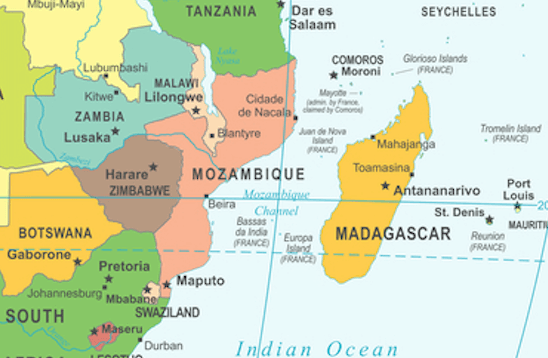



In contrast, the second-largest and second-most populous continent — Africa — produces just 4% of the world’s greenhouse gasses. But Africa suffers disproportionately from climate-driven disasters.
With a death toll over 500 and rising, Cyclone Freddy has devastated Madagascar, Malawi and Mozambique. Lasting over a month, it is believed by the World Meteorological Association to be the longest-lasting cyclone ever recorded.
Freddy was exceptional in other ways too, none of them beneficial. This particularly powerful storm generated as much energy as a whole season of hurricanes in the U.S. It had a high number of sudden accelerations, with gusts as high as 132 miles per hour. The cyclone had an uncommon trajectory, hitting Madagascar first, then moving west to Mozambique, back east to the Indian Ocean, to Mozambique again and finally hitting Malawi, having traveled a total of 5,000 miles. (npr.org)


Malawi was hit the hardest, accounting for 80% of the deaths. Tens of thousands of people have lost their homes, and many are surviving in trees to stay above the water. All three countries sustained massive infrastructure damage, with hospitals and schools leveled. People were left without access to food.
The region of Southeast Africa was already dealing with a cholera epidemic; now the destruction will magnify the suffering, as flooding hastens the spread of waterborne and also mosquito-borne diseases. Many of the deceased are buried deep in the mud and may never be found. Parts of the affected area could remain underwater for some time to come.
Malawi’s carbon emissions are less than one-tenth of a ton per capita. The people of the former British colony are suffering immensely from a global warming catastrophe they did not create.
Legacy of enslavement, colonization
The challenges of recovering from the storm are compounded by the global divide between fabulous wealth and extreme deprivation. Although Africa is rich in mineral wealth, it has the highest poverty rate of any continent. Of its 54 countries, 34 are among the poorest 50 in the world, with 40% of Africa’s people surviving on less than $1 per day. Yet the United Nations has offered the three countries impacted by Cyclone Freddy just $10 million in aid for recovery.
Africa’s poverty stems from the brutal history of enslavement and colonization. The massive theft — not only of mineral wealth but of somewhere between 12 million and 20 million human beings — funded the expansion of capitalism, making it the dominant mode of production globally. Imperialism, the highest stage of capitalism, characterized by the growth of monopoly and the domination of finance capital, came into being on the backs of African people.
Trillions of dollars are owed to Africa and Africans in the diaspora for stolen resources, labor and people.
Reparations now! Make the billionaires pay!
Hamas issued the following statement on April 24, 2025, published on Resistance News Network. The…
By D. Musa Springer This statement is from Hood Communist editor and organizer D. Musa…
Portland, Oregon On April 12 — following protests in Seattle and elsewhere in support of…
This statement was recently issued by over 30 groups. On Friday, March 28, Dr. Helyeh…
When Donald Trump announced massive tariffs on foreign imports April 2, Wall Street investors saw…
The century-long struggle to abolish the death penalty in the U.S. has been making significant…